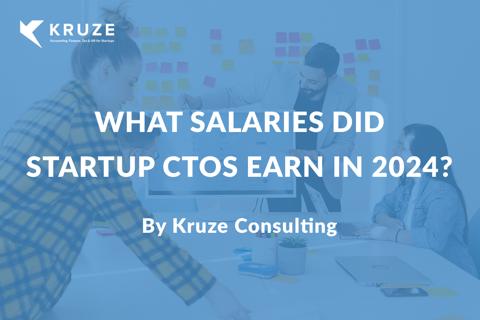
Let’s be honest, most startup founders are underpaid.
Founders know they need to hire a lot of people to build something successful, so oftentimes they are underpaid as a result, even if they have raised a fair amount of seed or venture funding.
Most boards aren’t trying underpay founders on purpose. They probably don’t spend as much looking at CEO pay as they should, and they aren’t really incentivized to boost the company’s burn rate by paying the founders a lot. If you are looking to understand how much a founder should be paid, visit our Startup CEO Salary Report and use the pay calculator on the side to see what reasonable levels of compensation are based on your company’s industry and funding raised.
Startup founders should be paid a fair wage
Funded startup founders should be paid a fair salary because there is a lot of personal financial stress that comes along with being a startup founder, and especially if they’re not being paid a fair amount.
If founders are hurting, financially, then it will be hard for them to make good decisions for the company. If you don’t have enough money to live, then that stress will color all of your other decisions.
It can also bring a lot of stress to their family lives. Their partners will also experience the same stress and maybe even develop resentment towards the partner who isn’t earning enough.
When should a founder start getting paid?
When a company raises funding, the typical, largest expense will be for salaries – and this should include the founders. There are two critical parts to the equation on when a founder should start getting paid:
1) how much the founder wants/needs to not have financial distress, and
2) how and when the company’s financial projections can support founder pay.
Some founders may resist collecting a paycheck until their companies have a particular level of traction, funding, or runway. However, eventually this will start to cause finanacial stress for all but the most well-off people. That’s why we recommend that founders start collecting some salary as soon as the company has raised enough capital to pay the non-founders and contractors reasonably well.
Another part of the equation is the company’s projections – when will the company run out of the funding? We recommend that the founders put together a financial model that helps them understand how much money they can afford to pay out in salaries overall, and for them to use these projections to decide how much compensation they can take themselves. Keep in mind that technical founders - CTOs - are often compensated higher than other team members because their skills are in such high demand.
Should a founder be paid in advance?
Whether the CEO should be paid in advance is entirely different question.
It’s not a good idea because it doesn’t solve the total compensation problem. Also, if the company or the board part ways with the founder, then that’s cash out the door.
If a CEO is asking to be paid in advance, it’s a symptom of a bigger problem: they’re not being paid enough to live.
This should be a red flag for the board who needs to explore how to pay them appropriately.
Exercising stock options
It is often expensive to exercise your stock options. Founders often don’t have a lot of money on hand because they’ve put it all back into the company, or they simply don’t have a lot of cash on hand.
In this case, the board can structure a type of loan that uses the stock as collateral. That way, instead of the founder being paid in advance, the board is helping them to solve the problem of how to exercise their stock options.
This really only works if the company is doing well and things are looking good. Where it can hurt the founder is if the company tanks. Then they have an outstanding loan that is forgiven once the company goes under.
However, a forgiven loan is still technically taxable income. That means, the founder will be facing a tax bill on worthless stock.
So while this type of loan can temporarily mitigate issues, it can also cause problems down the road.
Consider bonus pay instead
Instead, the board can consider paying founders a bonus, so they can exercise their options, rather than giving them a loan.
Of course, you will have to pay payroll taxes on the bonus, or any kind of advance for that matter. There are companies that don’t realize that even when paying themselves a distribution, they must run it through payroll taxes.
Believe that the IRS will be all over that bonus or advance. They rely on those payroll taxes, so they will be aggressive in collection those taxes, including sending collection notices and levying penalties.
To make your life easier, always run your distributions or any cash through payroll service and pay the payroll taxes.
The bottom line on CEO pay
If a founder is asking to be paid in advance, there’s usually something else going on.
It’s important that board members investigate what’s behind the request.
For founders, perhaps consider re-posing the question and making it clear you’re trying to tell them you need to be paid more or you need a bonus to exercise your stock options. Or, maybe you just have a life event happening that requires a little more cash flow.
Either way, talk to the board and let them know what’s going on. Because getting paid in advance isn’t going to solve the underlying problem, and will only end up exacerbating it, and may even take the startup down with it.
If you any questions about CEO pay or startup accounting, please contact us.















